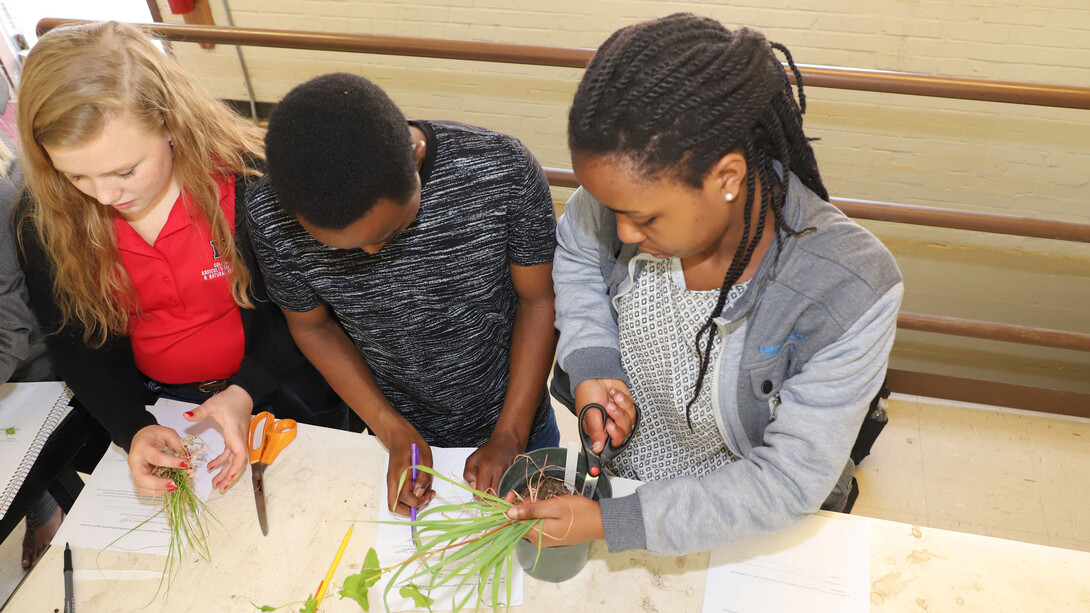
Students in the College of Agricultural Sciences and Natural Resources were introduced to the world of cover crops during a semester-long challenge last spring.
The students completed the challenge as part of their spring semester Agronomy 204 Resource Efficient Crop Management class with Andrea Basche, assistant professor of agronomy and horticulture.
Basche said the challenge gave her students practical experience growing and evaluating cover crops.
“The goal was to grow the most cover crop biomass and the most diverse cover crop mix for the least cost, and prepare students to solve complex problems where multiple priorities and considerations needed to be evaluated,” Basche said.
Cover crops are plants used primarily to slow erosion, improve soil health, enhance water availability, smother weeds, help control pests and diseases and increase biodiversity and crop yields.
Diverse mixes used by the students included buckwheat, radish, crimson clover and several grass species including oats, cereal rye and barley.
To prepare for the challenge, students measured four different species growing in the greenhouse at five different seeding rates ranging from less than recommended, recommended and higher than recommended rates. Students then determined planting rates, species characteristics, performance and costs associated with different seeds.
The 103 students then worked in groups to plan and plant two cover crop experiments – one grown in the teaching greenhouse and another in a field, both on East Campus. Over a five-week period, students watered the plants in the greenhouse while the field plants were rain-fed.
Winning teams and their cover crop species combinations were:
Didier Ndenga, Trey Kedoliczak and Mark Freyhof —cereal rye, oats, ryegrass and buckwheat
Regan Kerkman, Terence Irumva and Jean d’Amour —seed buckwheat, cereal rye and radish
Reid Pretzer, Robert Cyuzuzo and Clement Niyirora— buckwheat and spring oats
Ryan Dorn, Patience Gihozo and Christian Nduwumwami—cereal rye and crimson clover
Eugene Baraka, Gloria Dukuzeyesu and Kurt Nelson— buckwheat and spring oats







